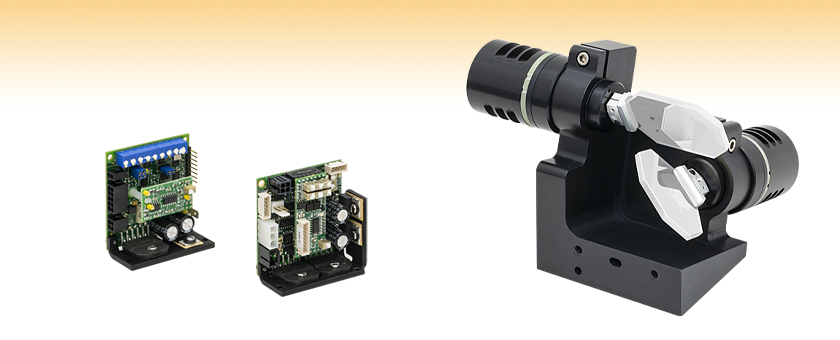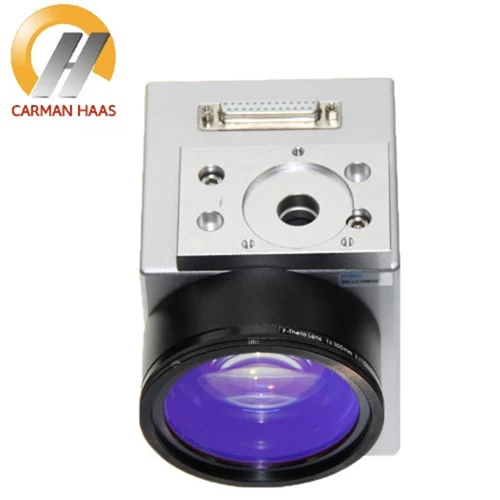Discovering the Advanced Features of Modern Galvanometer Scanners in Research
Discovering the Advanced Features of Modern Galvanometer Scanners in Research
Blog Article
Just How a Galvanometer Scanner Boosts Efficiency in Laser Scanning Technologies
The assimilation of galvanometer scanners in laser scanning technologies represents a crucial advancement in accuracy design. By assisting in exact and quick changes of laser beam of light direction, these gadgets significantly enhance functional efficiency throughout different applications, from medical imaging to commercial inscription. The underlying electromagnetic devices, combined with sophisticated comments systems, make certain real-time control and enhanced accuracy. As industries progressively demand greater performance criteria, the question emerges: what future technologies might further raise the capacities of galvanometer scanners in this developing landscape?
Comprehending Galvanometer Scanners
A galvanometer scanner is an advanced tool that leverages electro-magnetic concepts to accomplish precise angular motion of mirrors or other reflective surface areas. These scanners run through the communication of an electric present and a magnetic field, allowing quick and accurate positioning. This modern technology is necessary in applications needing high-speed scanning, such as laser inscription, optical communication, and medical imaging.

Galvanometer scanners are often characterized by their rapid feedback times and high angular resolution, making them excellent for applications that demand quick movements and accurate positioning. Their integrity and performance make them an essential element in modern laser scanning technologies, adding considerably to advancements in numerous areas, consisting of manufacturing, medical care, and telecommunications.
Mechanism of Laser Light Beam Control

The control system relies upon closed-loop responses systems that continually keep track of the light beam's position. The signals from optical sensors offer real-time data to the control system, enabling for fast changes to preserve accuracy. This is important in applications where also minor deviations can endanger the top quality of the check or inscribing.
Furthermore, the galvanometer's feedback time is paramount; high-speed electric motors make it possible for swift activities, ensuring that the laser light beam can swiftly map intricate patterns or do complex operations. The combination of digital signal processing further enhances the responsiveness and accuracy of the galvanometer scanner. Overall, the mechanism of laser beam control via galvanometer scanners exhibits the blend of innovative engineering and innovation, generating high-performance outcomes in laser scanning applications.
Benefits of Boosted Accuracy
Improved precision in laser scanning technologies provides considerable advantages throughout various applications, from industrial production to medical procedures. The integration of galvanometer scanners enables extremely exact light beam positioning, which is crucial for jobs requiring careful information. This enhanced precision makes certain that the laser can target particular areas with marginal variance, leading to remarkable high quality end results.
In industrial contexts, specific laser scanning causes enhanced item uniformity and lowered product waste. Parts produced with high precision are much less most likely to call for rework, therefore improving productivity and minimizing functional expenses. In clinical applications, the precision of laser treatments can dramatically impact person end results. For instance, in laser surgical procedure, accurate targeting decreases damages to surrounding cells, bring about quicker healing times and fewer issues.
Moreover, boosted precision facilitates sophisticated applications such as 3D imaging and microfabrication, where also minute inaccuracies can result in substantial mistakes. By giving trustworthy and repeatable laser positioning, galvanometer scanners contribute to the total effectiveness and performance of laser systems. In summary, the advantages of enhanced precision not just enhance operational performance however likewise boost the requirements of top quality and safety in numerous industries.
Applications in Various Industries
The adaptability of galvanometer scanners in laser scanning technologies prolongs throughout numerous sectors, each benefiting from the precision they offer. In the clinical area, great post to read these scanners are critical in applications such as laser surgical treatment and imaging, permitting very precise targeting of tissues while decreasing damages to surrounding locations - galvanometer scanner. Their rapid feedback and great resolution are important in producing high-grade results
In the manufacturing field, galvanometer scanners improve procedures like laser engraving and cutting. Their capacity to quickly direct laser light beams onto surfaces allows efficient assembly line, improving speed and precision in creating complex designs or elements.
The auto market also takes advantage of galvanometer modern technology for quality control and inspections (galvanometer scanner). By utilizing high-speed scanning, manufacturers can detect issues in settings up or materials, making sure that items fulfill strict criteria
Additionally, in the enjoyment sector, galvanometer scanners are utilized in laser light programs and display screens, using vibrant visual experiences with precise control over laser movements.
Future Trends in Laser Scanning
Arising modern technologies are poised to reinvent the landscape of laser scanning, with galvanometer scanners at the forefront of this improvement. As sectors progressively require accuracy and performance, the advancement of galvanometer technology will drive significant improvements in laser scanning applications.
Future fads show a growing assimilation of fabricated knowledge and artificial intelligence formulas, which will improve data processing capabilities and automate decision-making in real-time. This synergy will enable more sophisticated analysis of checked information, bring about enhanced accuracy in applications such as 3D modeling and autonomous navigation.
Furthermore, the miniaturization of elements and the development of advanced products will add to lighter, more portable laser scanning systems. This transportability will expand the reach of laser scanning anonymous technologies right into formerly unattainable settings, such as remote surface and elaborate building spaces.
The rise of augmented reality (AR) and digital truth (VR) applications will certainly likewise like it shape the future of laser scanning. By integrating galvanometer scanners with AR and virtual reality, users will certainly gain from immersive experiences that improve visualization and job preparation.
Verdict
Finally, galvanometer scanners play a critical function in optimizing laser scanning technologies via their exact control of light beam direction and rapid angular changes. The combination of sophisticated comments systems and optical sensing units significantly boosts operational rate and accuracy, bring about improved outcomes in applications such as laser inscription and medical imaging. As sectors significantly embrace these innovations, the ongoing innovations in galvanometer scanner designs are expected to further boost performance criteria and widen application opportunities.
The integration of galvanometer scanners in laser scanning modern technologies represents an essential advancement in accuracy design. In general, the mechanism of laser beam control with galvanometer scanners exhibits the combination of sophisticated engineering and modern technology, yielding high-performance results in laser scanning applications.
By providing trustworthy and repeatable laser positioning, galvanometer scanners contribute to the total performance and effectiveness of laser systems.The flexibility of galvanometer scanners in laser scanning modern technologies extends across multiple industries, each benefiting from the accuracy they give.In conclusion, galvanometer scanners play a crucial role in enhancing laser scanning innovations via their specific control of light beam direction and fast angular adjustments.
Report this page